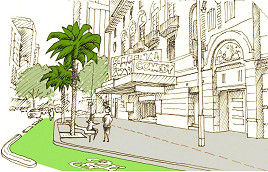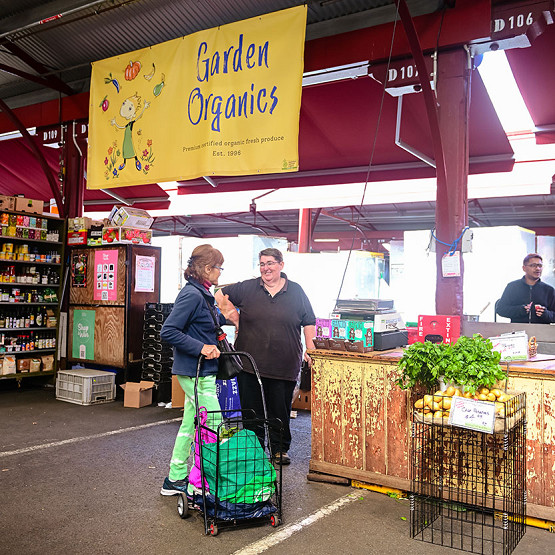Federal inquiry to consider QVM’s crucial role in food supply chain
A Queen Victoria Market (QVM) lobby group has made a submission to a federal parliamentary inquiry highlighting the importance community markets play in Melbourne’s food security.
In their submission to be considered by a parliamentary inquiry that aims to strengthen and safeguard Australia’s food security, the Friends of Queen Victoria Market (FOQVM) outlined how markets such as QVM had a “very cost-effective impact” on the food supply chain and operated “far more efficiently and reliably than a supermarket”.
“The Queen Victoria Market is Australia’s largest open-air market whose customers come from wider Melbourne to take advantage of the diversity on offer, the freshness and affordability of the food and the experience of enjoyable relationships with the traders they deal with,” the submission said.
The FOQVM’s president Mary-Lou Howie said affordable and quality food was essential for everyone, particularly when rising cost of living pressures affected all Australians.
“It must be addressed at local, state, and federal government levels,” she said.
A City of Melbourne survey found more than 30 per cent of the community had experienced food insecurity in 2022 and only four per cent of adults in the community consumed sufficient fruit and vegetables.
“Responding to the sharp increase in food insecurity during Covid-19, the City of Melbourne developed and adopted the Community Food Relief Plan 2021-2025, committing the City to the goal of increased food security for everyone, especially the most vulnerable,” the council’s Food City Policy stated.
In its submission to the inquiry, which was launched in October last year, the FOQVM acknowledged climate change had impacted food production in Australia but “the key issue here is the insecurity of the supply chain and the concentration of ownership and control”.
“They [markets] are very efficient, generally located on low- or no-rent public land and do not have substantial buildings/fittings, management structures and advertising budgets. They also allow farmers to directly sell seasonal produce to the public independent of intermediaries without the commitment of a shop front and lease.”
The Salvation Army’s Major Brendan Nottle said their organisation’s Magpie Nest Café in Bourke St, which provided free meals and a range of supports to the community, had seen upwards of 215 people dropping in for lunch during April.
“We’re seeing almost record-level numbers of people come through our café for support,” he said.
“The really troubling thing for us is we’re seeing an increasing number of people come in wearing high-vis, and they’re people employed but cannot make ends meet even though they’re receiving an income.”
Asked if he believed markets played a vital role in food security, Maj Nottle said: “There’s no question.”
“The role markets play is not just around providing cheap, quality food but it also provides people a sense of hope that they can get through this and have their family eat in a nutritious and affordable way.”

Council endorses office tower at Flinders Lane despite querying car park demolition





 Download the Latest Edition
Download the Latest Edition